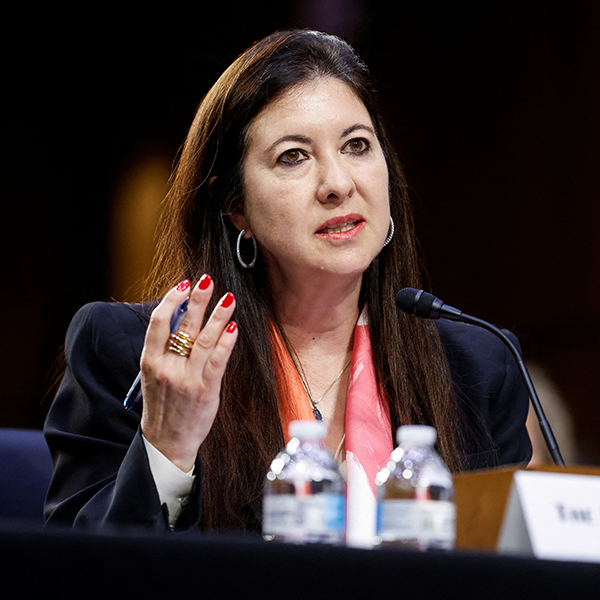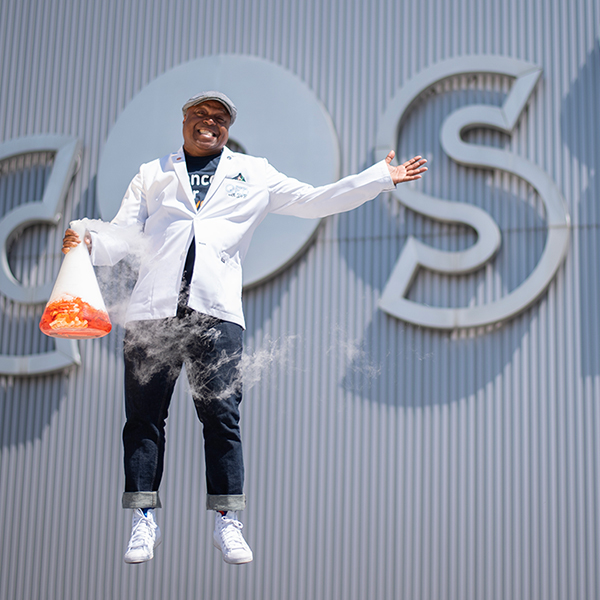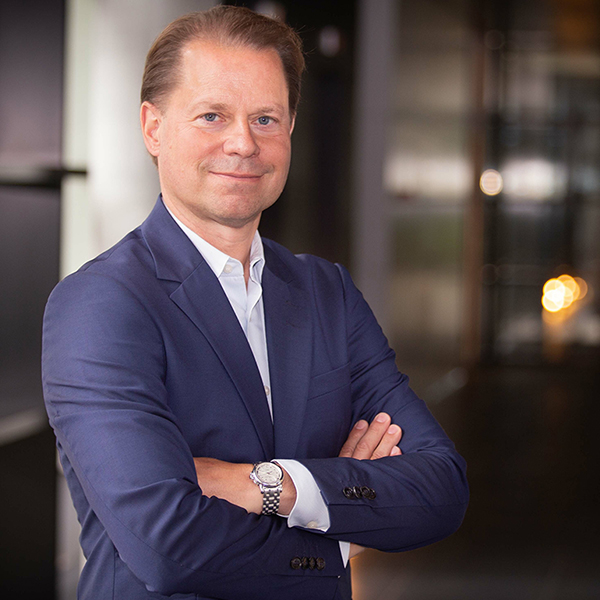At the Yuri Gagarin Cosmonaut Training Center, in the suburbs of Moscow, David Saint-Jacques has been putting in long hours to earn the most exclusive flying license in the world: co-pilot on the Soyuz space capsule.
In November 2018, the Canadian astronaut will blast off and make his way to the International Space Station (ISS) for a six-month mission some 400 kilometres above the Earth.
Of the 12 astronauts in the Canadian Space Program, four are doctors, six are physicists and seven are engineers – but only Saint-Jacques, MedResident’07, is all three. “I have always had this passion for understanding things. It’s like a weakness,” says the family doctor, an adjunct professor in McGill’s Department of Family Medicine.
At 47, Saint-Jacques is an airplane pilot and a polyglot who speaks French, English, Spanish, Japanese and Russian. He has an advanced scuba-diving license and is a passionate mountaineer, sailor and kite surfer. He worked in Quebec’s north for two years as the co-chief of medicine at the Inuulitsivik Health Centre, in Puvirnituq.
The countdown to the Soyuz take-off will have consumed an entire decade of his life. In 2008, he entered the selection process for Canadian astronauts, a year-and-a-half long exercise in which 5,350 candidates were whittled down to two. And that was only the beginning. He has been training to venture into space ever since.
“He will have spent much more time becoming an astronaut than he did getting a PhD in astrophysics,” says retired astronaut Chris Hadfield, the first Canadian to walk in space. “The difference, of course, is that you don’t risk your life doing a PhD, while during a mission, a single mistake might cost seven people their lives, not to mention billions of dollars.”
Saint-Jacques has been spending half his time in Moscow, where, after a full year of course work, he will start training in a flight simulator. The rest of his time is split between Tokyo, Cologne, Montreal and Houston.
In Tokyo and Cologne, he is mastering the intricacies of space modules supplied by the Japanese and European space agencies. In Montreal, he is learning how to use the Canadarm, Canada’s remote-controlled mechanical arm and its most famous contribution to space technology. In Houston, he practices space outings in a spacesuit (a pool full of water substitutes for outer space at NASA’s Neutral Buoyancy Laboratory).
You don’t become an astronaut by being the best in everything. You get there because you never give up.”
David Saint-Jacques
All the while, Saint-Jacques strives to carve out time for his wife (fellow family doctor Véronique Morin) and their three young children. Given the travel and the training demands of his unique profession, it’s not always easy.
“I have to not only meet the standards of an astronaut, but of a father and husband too. It’s the trickiest and the riskiest part of what I’m doing.”
“No matter what David undertakes, he pours his whole heart into it,” says Canadian Space Agency projects manager Stéphane Desjardins. The longtime friends met when they were teenagers in Pointe-aux-Anglais, on The Lake of Two Mountains, where both their families had chalets.
“When I started surf-sailing, David got interested. He was curious and started asking me all sorts of questions. The student went on to surpass the master!”
After completing his engineering degree in 1993 at École Polytechnique, Saint-Jacques began a PhD in astrophysics at the University of Cambridge. Next, he did postdoctoral studies in Japan, developing optical systems for telescopes (he also used his time there to learn Japanese and master the Shakuhachi flute).
Then, at the age of 31, Saint-Jacques reversed orbit and headed to Laval University to begin medical studies. He decided to focus on family medicine.
“The scientific side of medicine attracted me less than the relational part of it,” he says. “Doctors use as much scientific information as they can, but beyond that, medicine is an art. We’re constantly making decisions in grey zones where things aren’t clear. The job requires a lot of judgment. For me, that’s the real challenge.”
After completing his medical degree in 2005, Saint- Jacques did his residency at McGill. “The medical faculty had a good reputation, but that’s not the only reason I chose it,” he explains. “I had read about how much importance McGill placed on practicing in remote areas. And I had a sort of sociological curiosity to see a side of [Quebec] I wasn’t familiar with.”
Associate professor of family medicine Vania Jimenez, BSc’67, MDCM’71, supervised Saint-Jacques during his residency. Later, they became colleagues when they worked in northern Quebec together.
“David’s communication skills are what really sets him apart,” says Jimenez. “He has such a clear way of explaining things, whether with patients, or discussing ethical questions with doctors, or talking about quantum physics at a dinner party.”
“For me, [the Arctic] was a school of life,” says Saint-Jacques. He mentions the incredible beauty of the land, and the joie de vivre and resilience of the Inuit. “When you live in a small village, you have to make yourself useful. There’s no room for cynicism.”
If Saint-Jacques regrets one thing about becoming an astronaut, it’s that he can’t practice medicine as much as he’d like to.
“There’s something sacred about medicine. We touch on the most important things in people’s lives. The emotional intensity was what really made me feel I’d made the right choice. It was worth putting all my energy into it.”
It was while Saint-Jacques was in Puvirnituq that destiny knocked on his door, in 2008, when a radiology technician who had just heard about the Canadian Space Agency’s latest recruitment drive approached him.
“It’s funny, because it was an old dream of mine, but I never talked about it with anyone. The technician told me, ‘If you don’t apply, I’m going to do it for you.’” Saint-Jacques submitted his application from Nunavik via satellite.
Saint-Jacques now realizes that he didn’t fully understand what he was signing up for. The Canada Space Agency’s selection process is an arduous obstacle course, including such demanding tests as escaping from a cockpit while it’s underwater, resisting hypothermia and combating an electrical fire aboard a ship.
During the selection process, Saint-Jacques encountered sensations that over-achievers like him rarely feel. “Everything is designed to make you think you’re always coming up a little short. That’s the hardest part of the process. That, and the psychological endurance it requires.
“You move constantly for a year, always on short notice. It’s a non-stop emotional marathon,” says Saint-Jacques. “But that’s what brings out the quality they are looking for: tenacity. You don’t become an astronaut by being the best in everything. You get there because you never give up.”
translated by Julie Barlow, BA’91


